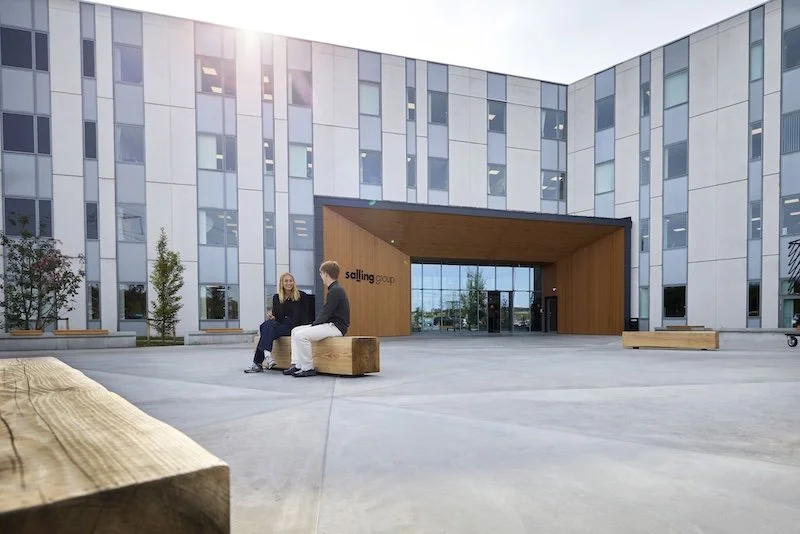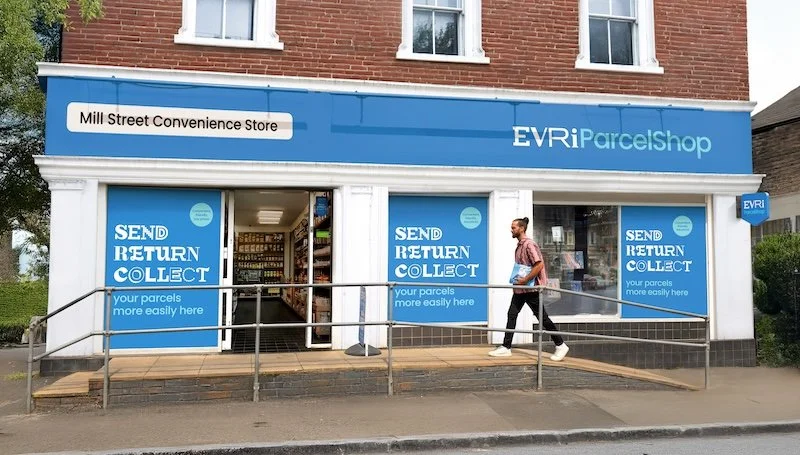Jess Jeetly, Founder and CEO, Jeetly
Retail Technology Innovation Hub: Tell us about yourself
Jess Jeetly: I’m the Founder and CEO of Jeetly, the first clothing brand for women under 5’4 tall, that puts customers in control of what gets made. We’re on a mission to democratise the fashion industry and shape the future of fashion.
I’m a consultant optometrist by training and trade but I always seeked new challenges, so Jeetly is my third business and my first passion. Prior to Jeetly, I founded pitchINDIA, an online ‘dragon’s den’ platform connecting entrepreneurs in India to angel investors and VCs worldwide, and LocumLog, a mobile app connecting employers to locum medical professionals looking for work. Funnily none of these businesses were in the industry that I trained in.
I was raised in an entrepreneurial household as the eldest of three girls, always intrigued in the workings of my father’s car exhaust business. But business was always run by men in our family, so no business discussions took place at home, something I regret as I had to learn about business the hard way by making the mistakes myself. I remember saying at the age of 11, that I wanted to build a big company, so I’m still working towards that dream.
Since my daughter was born, I became passionate about closing the gender gap in tech and empowering women and girls to step up and be the change they want to see. I’m a speaker at schools to promote entrepreneurship and girls’ participation in STEM subjects and am committee chair at the International Women In Business Organisation. I strongly feel that by making role models more visible and accessible is necessary in changing career perceptions and raising ambition, to give hope to younger females.
Besides being a speaker at retail and startup events, I’m a mentor for PitchAtPalace, judge at the UK Digital Entrepreneur Awards and I’m heavily involved in creating the Midland’s first Tech Awards, the Silicon Canal awards, to promote the region’s tech ecosystem.
RTIH: What inspired you to set Jeetly up?
JJ: I had never planned to venture into retail; it was just my way of finding a solution to a problem I was facing as a retail customer. As a petite (under 5’4) woman, measuring 5'1, I struggled to find work clothes to fit my petite frame. I experienced first hand the lack of clothing in petite proportions and I was becoming frustrated to have to alter 70% of garments I bought - namely jackets would gape at the shoulders, sleeves would overhang on blouses, dresses needed to be hemmed up and the waistline would sit below my waist. I was making do with casual styles, when alterations cost too much, because the existing petite offering catered to a mature customer which made me look like a girl dressed in her mum’s wardrobe.
Although clothing from the teen's department was a good fit, I was mistaken for being too young to do my job and was having to justify my professional credibility to my patients far too often that I felt there needed to be a change.I felt that the fashion industry had failed to recognise the need for premium clothing in petite sizing; I would complain about this to my husband, who encouraged me to do something about it. So I followed my gut instinct and wanted to make a change for those vertically-challenged like me. My market research proved that one in three women in the UK and US are petite and 85% of petite women felt their needs were not being addressed by existing retailers.
Despite my lack of fashion/retail experience, it was my frustration as a petite consumer that instilled my passion to launch the business. Of course I conducted market research to see if it would be a viable business before I started. I felt it was unfair for me to dictate trends to customers so I decided to flip the traditional retail model and ask my customer to choose and design exactly what she wanted in her working wardrobe, giving real women control of the styles that go ahead for manufacture and to finally have a say in a clothing industry that had ignored such a large proportion of female shoppers.
RTIH: What has been the industry reaction thus far?
JJ: We’re both humbled and proud that the industry has reacted positively to Jeetly as a startup. We have been shortlisted for national awards for tech, customer service and innovation, including Drapers Awards ‘Best Fashion Innovation’, Retail Week Awards’ ‘Best Customer Service’, Paypal Etail Awards’ ‘Best Retail Innovation’, TechCity UK’s ‘Best FashTech’ Startup. The industry has recognised the need for petite apparel with the large established retailers introducing petite collections for the first time. On average a new petite brand has launched every six months, so the competition has increased dramatically in the last two years.
With reference to our tech, most retailers believe the crowdsourcing of fashion is not sustainable with the view that customers will not wait two to three weeks to purchase apparel they have voted for. We disagree; the fast fashion model is a race to the bottom and despite the notion that Millennials seek instant gratification, we’ve learned that customers are searching for individuality and brand interaction. The reason shoppers are currently happy to wait for three weeks to buy the winning products from Jeetly is because they see it as a privilege to have their voice heard and influence production. They feel part of the brand and are loyal as a result. Customers are prepared to wait for quality product knowing that it has been ethically produced as they are more wary of fast fashion linked to sweat shops by mass media.
RTIH: Could you tell us about the technology underpinning Jeetly’s operations?
JJ: We’ve built a bespoke platform to create a unique shopping experience which started off as a simple algorithm using binary data but now monitors customer behavior and will soon utilise AI to design new samples.
We call it social commerce; a digital platform used by petite women worldwide that provides crowdsourced validation for petite fashion. We use the power of Big Data analytics and a consumer voting system to accurately predict the likely performance of items and to identify best sellers before they go into production. By swiping IN to indicate that a product should be produced for the next collection, or OUT to be ditched from the next collection; we obtain binary data from our customers, get to know more about them and personalise their shopping experience /email marketing based on what products they voted IN. We showcase our design samples online, our customers make changes to design and get £1 per vote as credit towards their next purchase, incentivising the voting process so that it is a win-win for all, we receive the data we need and the customer buys at a discounted rate.
The customer with the best design suggestion which is put forward for manufacture not only gets the garment free when it is retailed, but also has the garment named after them. Therefore, we identify consumer interest through the voting process and social engagement/feedback from our social media channels, then we design and manufacture apparel in response to real-time feedback from our consumer.
We truly want our customers to be part of the brand and shape its future. Not only does it makes business sense to involve customers in range planning to eliminate the inventory risk by only producing apparel that will sell, but also customers finally have a say in fashion and can buy clothes they want to wear as opposed to having retail buyers dictate trends. We can react directly to consumer demand with this model. Customers are genuinely excited about the products and email us to ask about the progress of production.
RTIH: What has been your biggest challenge/setback?
JJ: Raising funds for the business to scale has been my biggest challenge. It’s unfortunate that there aren’t enough female investors to pitch to, as 95% of the time I have pitched to a room full of men who don’t see a need for petite clothing and cannot understand why women would vote on products and then wait two weeks for delivery.
RTIH: What have been the highlights from 2017?
At a personal level my 2017 highlights include visiting Buckingham Palace to receive my MBE, being invited to 10 Downing Street to represent the fashion industry, attending World Retail Congress with the British delegation in Dubai, and receiving letters of thanks from girls and their parents for inspiring them to dream bigger and pursue a career in tech and entrepreneurship.
RTIH: How has the retail landscape changed in 2017?
JJ: I would highlight the following key developments: Brexit and the devaluation of Sterling in 2017 boosted international sales for most UK online retailers; The move from online to bricks and mortar was a strategy implemented by pureplay etailers taking on an omnichannel retailing approach: Missguided opened its first two stores, Amazon purchased Whole Foods etc.
The arrival of chatbots; the widespread use of machine-led customer service tools such as Facebook messenger to help improve online shopping experience; When CEOs/Founders of clothing brands became the new celebrity and social media influencers - Jane Lu of Showpo, Julie Stevanja of Stylerunner, Umar Kamani of PrettyLittleThing, Ben Francis of Gymshark; And the ‘retail apocalypse’ in the US, e.g. Macy’s, The Limited, ToysRUs, Radioshack, Sears.
RTIH: What can we expect to see from Jeetly over the next 12 months?
JJ: We’ve made huge improvements to our technology and user experience and look forward to launching the improved online store in 2018 with more payment methods and means of interaction with the brand. Jeetly will be launching a new casual category to meet the demands of working professionals who are now working from home and are wearing less formal attire.
We are expanding our platform to work with designers. INorOUT enables rapid consumer feedback from a tailored demographic, to identify best-sellers, poor performers, optimal price points and size ratios before orders are placed. Our designers can plan and sell their range with unparalleled confidence and accuracy.
The win-win for designers collaborating with us: they understand consumer opinion before they commit to a product, meaning our retail partners don't need to wait for sales figures to uncover a million-dollar mistake.










Continue reading…